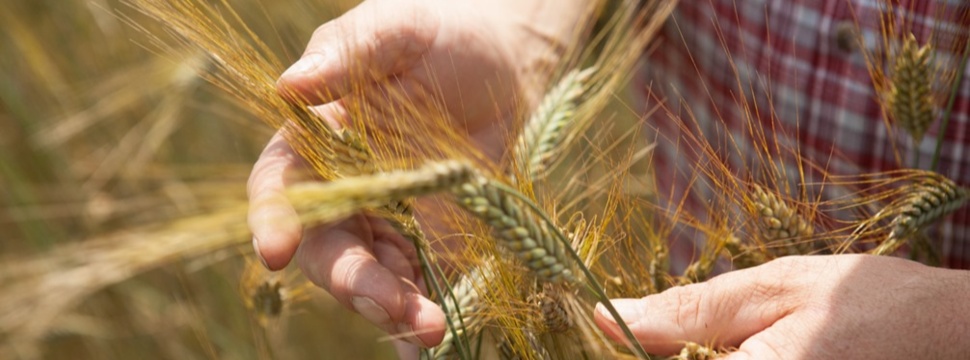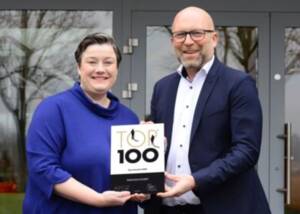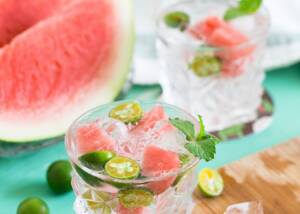Two flagship businesses celebrate 25 years of organic-regional partnership
News General news
In 1997, Plankstetten Monastery and Riedenburg Brewery started a bio-regional closed-loop system in which resources are used sensibly and by-products are reused. The result is four monastery beers brewed with Plankstetten grain in Riedenburg. On the occasion of this 25th anniversary, a press conference was held at the Riedenburg brewery where the Benedictine Abbey of Plankstetten and the organic brewery provided information about this cooperation. In addition to the press, TV and radio representatives, representatives of the regional tourism organisations also came. In addition to the background of the cooperation, the event focused on regional closed-loop systems as economic models of the future.

Abbot Beda Maria Sonnenberg OSB emphasised the relevance of the contracts that exist between the brewery and the abbey. "In a world that has become more than mobile, these contracts have become something very important, because they provide stability," said the abbot. The effects of the Corona pandemic, the war in Ukraine and the blockade of the Suez Canal exemplified the importance of regionality in the face of a globalised world. World trade was disrupted, supply bottlenecks developed and the economy was paralysed. "Regionality has now become a survival strategy. That's why the concept we came up with in 1997 is more than groundbreaking and promising for the future."
Senior brewery manager Michael Krieger explained the impetus behind this unique concept: the abbot at the time, Dr Gregor Maria Hanke, wanted to brew a spelt beer in the tradition of the old monastery brewery according to Benedictine rules and the teachings of Hildegard von Bingen. However, since the monastery's own brewery was shut down in 1959, a partner had to be brought in. This was quickly found in neighbouring Riedenburg, because both companies shared the same philosophy when it came to faith in creation and nature conservation. "We wanted to produce a handcrafted, high-quality product that would also be sustainable," Krieger explained. In addition to the spelt beer, two other monastery beers were launched on 1 April 1997 - the Plankstettener Spezial and the Pils, which was replaced by the Plankstettener Dunklem in the following years. In 2003, a new edition of the legendary Plankstettener Maibock was launched. The grain is still sourced from the monastery's organic farm.
The cooperation not only influenced the business structure, but led to a complete reorientation and image change of the brewery. While the company had been known as a pure wheat beer brewery until then, from now on it experimented with other original grain varieties. In addition to spelt, emmer and einkorn were also used and original grain beers such as the Edelbier (einkorn), the Ur-Bier (five-grain) and the Emmerbier were brewed. The company has thus developed from a wheat beer brewery into a speciality brewery - with a focus on planning security and fair raw material prices.
Maximilian Krieger, the managing director of Riedenburger Brauhaus, sees the transparent and fair cooperation as a big plus of this cooperation. While conventional breweries are exposed to grain prices, which can fluctuate greatly, here annual contracts ensure a reliable planning horizon and stable prices. Krieger, for whom sustainability is not a trend but a way of life, also appreciates the short transport routes. "It is sustainable if you don't let emissions arise in the first place. I find it alarming that almost half of the brewing grain consumed in Germany is imported from abroad." It is just under 30 kilometres from Riedenburg to Plankstetten. The malting plant is also located in Riedenburg, so there are no further transport routes.
"We live a concept where everything comes from the region, where the partners are known to each other, know their working methods and can thus operate reliably and transparently," Krieger emphasised. The organic grain is grown on the monastery's farm, delivered to neighbouring Riedenburg and brewed there. The leached grain (brewer's grains) is returned to the monastery as valuable animal feed. Liquid manure and dung go to the biogas plant and then to the field as natural fertiliser for the next generation of grain. In addition, the animals fed with the spent grains are slaughtered in the monastery butchery and the resulting meat and sausage products are processed and offered in the Riedenburg brewery beer garden.
Klaus Amann, the managing director of the Kelheim Landscape Management Association (VöF), also emphasised how sustainable and resilient management has proven its worth, especially in recent years. "This structure, as you introduced it 25 years ago, is a very stable structure. Today it is almost 'en vogue' to work sustainably and resiliently, with you it was pioneering," Amann said. The district of Kelheim also wants to orient itself more in the direction of "resilience" in the future, is planning corresponding projects and wants to start the transformation process for this as soon as possible. "It is therefore important to have such lighthouse companies in the region, where you can show that it also works in reality," Amann summed up.










